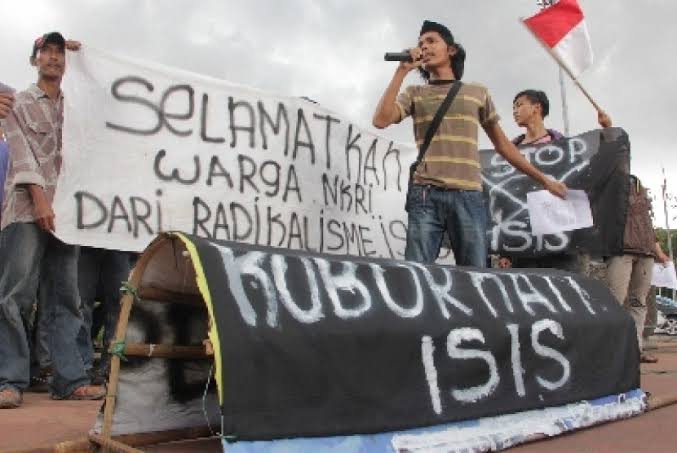Radicalism is understood as an ideology or movement that seeks rapid and forceful socio-political change. Radical movements aim to transform all aspects of society and are often associated with religious ideologies.
It is important to note that religious radicalism can emerge from any faith. In Indonesia, where various religions coexist and the majority of the population practices Islam, religious radicalism is often linked to Islamic radicalism.

Radicalism frequently arises when individuals become alienated from their families and communities. Various factors contribute to this alienation, including religious, socio-economic, and political issues. This isolation typically leads to the formation of a new identity aligned with the individual’s ideological beliefs.
Understanding of radicalism among Muslims is generally low, especially among those who are new to the faith or have a limited grasp of Islamic teachings. As society becomes more technologically advanced, some segments of the Muslim community have adopted increasingly rigid views.
This trend is evidenced by the proliferation of radical Islamic groups in various countries, including Indonesia. These groups base their actions on strict interpretations of religious texts and believe that the only way to uphold Islamic law is through direct action, even if it involves violence.
Radical groups not only engage in violent acts but also clash with others who hold differing views or ideologies.
In the context of Indonesia, radicalism poses a serious threat to national unity and cohesion. Therefore, it is essential for Muslims to foster interfaith dialogue and cooperation to combat radicalism.
One prominent figure in the Nahdlatul Ulama (NU), KH Ahmad Bahauddin Nur Salim, known as Gus Baha, frequently addresses social and religious issues, including radicalism. He asserts that religious scholars (ulama) play a vital role in addressing radicalism. This role can be realized through several approaches:
First, providing correct religious understanding. Gus Baha emphasizes that ulama must teach the true understanding of religion to the community. This is crucial to prevent the misuse of religion, which can lead to radicalism. Islamic values such as mercy for all creation (rahmatan lil alamin), tolerance, and peace should be highlighted in religious teachings.
Second, serving as role models for society. Ulama should exemplify peaceful and compassionate behavior. By doing so, they can demonstrate that Islam is a religion of peace and kindness.
Third, engaging in dialogue with various groups. Ulama need to build dialogue with government officials, security forces, and other Islamic organizations. This dialogue is essential for creating synergy and cooperation in combating radicalism.
Fourth, mentoring the youth. Young people are often targeted by radicalism, making it imperative for ulama to educate them to prevent them from falling into radicalism. Educational programs, seminars, and youth activities can serve as platforms for this mentorship.
Fifth, establishing media outlets for religious outreach. Ulama should create media platforms to disseminate accurate religious teachings and counter radical narratives. These platforms can include websites, social media, and radio.
Gus Baha also advises that ulama must exercise caution when delivering sermons. They should avoid provocative or incendiary messages that could incite violence. Instead, they should promote peaceful and compassionate preaching.
In conclusion, the role of Indonesian ulama in combating radicalism is paramount. They are expected to serve as exemplary figures, foster good relationships with various parties, mentor the youth, and establish media for religious outreach. By helping society understand the true concepts of religion, the constructive role of ulama can significantly contribute to ending radicalism and maintaining Indonesia as a peaceful and tolerant nation.






